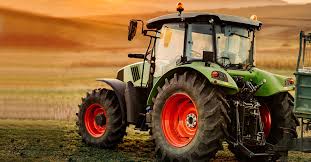Table of Contents:
- Introduction to Modern Agricultural Tractors
- Technological Advances Revolutionizing Tractors
- The Rise of Autonomous Tractors
- Sustainability and Eco-Friendly Tractor Innovations
- Economic Considerations for Farmers
- Practical Tips for Choosing the Right Tractor
- The Future Outlook for Agricultural Tractors
Introduction to Modern Agricultural Tractors
Agricultural tractors have advanced extensively in recent years, making them pivotal in modern farming. The demand for more efficient farming practices has led to innovations that extend beyond the simple tasks of plowing and planting. For farmers looking to modernize their operations, exploring various tractors for sale is crucial in finding equipment that meets their needs.
Modern tractors are indispensable tools that assist in plowing, planting, harvesting, and transporting goods. The latest models integrate cutting-edge technologies, increasing productivity and enhancing sustainability in farming practices. Tractors with advanced features can manage large-scale farming operations more effectively, allowing for more efficient use of time and resources.
These innovations include GPS-guided systems for precision farming, which ensure optimal planting patterns and reduce waste. Additionally, modern tractors often come with automated steering and variable rate technology, enabling farmers to apply inputs such as seeds and fertilizers more accurately. Environmental sensors and telematics allow for real-time monitoring of soil conditions and machinery performance, leading to proactive maintenance and minimized downtime. Hybrid and electric models are also emerging, offering more environmentally friendly alternatives to traditional diesel engines. With these advancements, farmers can achieve higher yields and lower operational costs, making modern tractors a valuable investment for sustainable agriculture.
Technological Advances Revolutionizing Tractors
Technology has revolutionized the agricultural industry in numerous ways. Contemporary tractors now come equipped with intelligent farming technologies such as GPS, IoT sensors, and advanced data analytics. These tools enable precision farming, which optimizes field operations and significantly reduces waste, resulting in better yields and more sustainable farming practices.
GPS-guided steering systems enable higher accuracy in planting and cultivating crops, eliminating the guesswork involved. Integrating IoT sensors allows for real-time monitoring of soil conditions, aiding in timely decisions that can improve crop health and output. Data analytics further help interpret the collected information, enabling farmers to fine-tune their strategies and enhance future farming operations.
The Rise of Autonomous Tractors
Autonomous tractors are rapidly gaining traction in the agricultural sector. These self-driving machines have advanced sensors and artificial intelligence, allowing them to perform various farming tasks autonomously. The rise of autonomous tractors promises to reduce labor costs considerably and minimize human error, thereby enhancing efficiency and productivity in farming operations.
Several models of autonomous tractors are already being tested and slowly integrated into farming practices worldwide. These tractors can navigate fields, apply fertilizers, and harvest crops without human intervention, providing a seamless and more efficient farming experience. The implementation of self-driving tractors is expected to be a significant development, enabling farmers to concentrate on other important aspects of managing their farms.
Sustainability and Eco-Friendly Tractor Innovations
With increasing awareness of the environmental impact of agriculture, the industry is embracing sustainability more than ever. Innovations in tractor design now focus on reducing carbon footprints and enhancing energy efficiency. The advent of electric tractors, which operate on robust batteries, and those utilizing alternative fuels like biofuels are becoming increasingly common, marking a significant step toward sustainable farming.
Some modern tractor models also harness renewable energy sources such as solar power for charging. These eco-friendly tractors help reduce emissions and promote sustainable farming practices that benefit the environment. The move towards sustainability in tractor innovations reflects a broader trend within the agricultural sector, emphasizing the importance of ecological responsibility.
Economic Considerations for Farmers
Investing in new tractor technologies might be expensive in the short term, but the long-term benefits often validate the initial costs. For example, fuel-efficient models can significantly save fuel expenses over time. Similarly, tractors with advanced features that can perform multiple tasks reduce the need for several machines, cutting operational costs.
Farmers should also know government subsidies and incentive programs promoting sustainable farming practices. These financial aids can significantly lower the cost of adopting new technologies, making it more feasible for small and medium-sized farms to transition to modern, efficient farming equipment. Carefully evaluating long-term benefits versus short-term costs is crucial in making informed investment decisions.
Practical Tips for Choosing the Right Tractor
- Assess Your Farm’s Specific Needs: To ensure the tractor fits your requirements, consider the size of your farm and the types of crops you grow. Matching the tractor’s capabilities with your operational needs will optimize efficiency and productivity.
- Evaluate Technological Features: With myriad features available, it is essential to choose those that will bring tangible benefits to your farming practices. Look for features like GPS guidance, IoT sensors, and autonomous capabilities that can make your work easier and more efficient.
- Consider Brand Reputation and Support: Opt for established brands that offer reliable support and warranties. A reputable brand often ensures better quality, durability, and extensive customer support to address any issues.
- Plan Your Budget: Beyond the initial purchase price, consider long-term costs such as maintenance and fuel. Planning your budget comprehensively will help you make a cost-effective investment with long-term benefits.
The Future Outlook for Agricultural Tractors
The future of agricultural tractors is promising, given the continuous technological advancements and the increasing emphasis on sustainability. Innovations such as autonomous tractors and eco-friendly models are expected to become more widespread, providing farmers with tools for higher efficiency and productivity.
Keeping abreast of emerging trends and technological breakthroughs is crucial for farmers looking to stay competitive. Continuous learning and adaptation will enable them to leverage new tools and techniques, ensuring agriculture’s prosperous and sustainable future. The fusion of technology and agriculture can lead to unprecedented growth and success with the right approach.
Stay in touch to get more updates & news on Webofbuzz!




